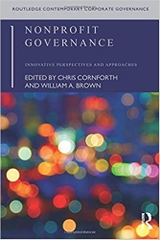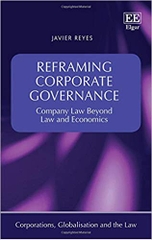-
-
-
Tổng tiền thanh toán:
-
-
Thông tin
-
Tìm sách theo yêu cầu
The first decade of the new millennium was bookended by two major economic crises. The bursting of the dotcom bubble and the extended bear market of 2000 to 2002 prompted Congress to pass the Sarbanes-Oxley Act, which was directed at core aspects of corporate governance. At the end of the decade came the bursting of the housing bubble, followed by a severe credit crunch, and the worst economic downturn in decades. In response, Congress passed the Dodd-Frank Act, which changed vast swathes of financial regulation. Among these changes were a number of significant corporate governance reforms.
Corporate Governance after the Financial Crisis asks two questions about these changes. First, are they a good idea that will improve corporate governance? Second, what do they tell us about the relative merits of the federal government and the states as sources of corporate governance regulation? Traditionally, corporate law was the province of the states. Today, however, the federal government is increasingly engaged in corporate governance regulation. The changes examined in this work provide a series of case studies in which to explore the question of whether federalization will lead to better outcomes. The author analyzes these changes in the context of corporate governance, executive compensation, corporate fraud and disclosure, shareholder activism, corporate democracy, and declining US capital market competitiveness.
Tại web chỉ có một phần nhỏ các đầu sách đang có nên nếu cần tìm sách gì các bạn có thể liên hệ trực tiếp với Thư viện qua Mail, Zalo, Fanpage nhé
Đăng ký nhận tin qua email
Hãy đăng ký ngay hôm nay để nhận được những tin tức cập nhật mới nhất về sản phẩm và các chương trình giảm giá, khuyến mại của chúng tôi.












